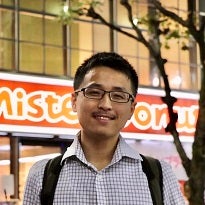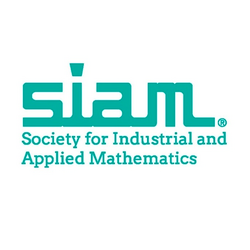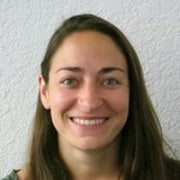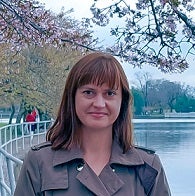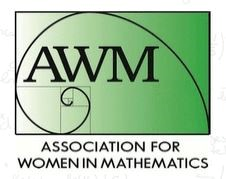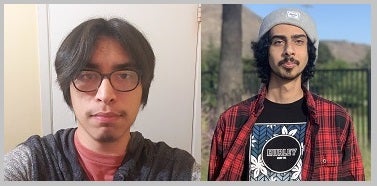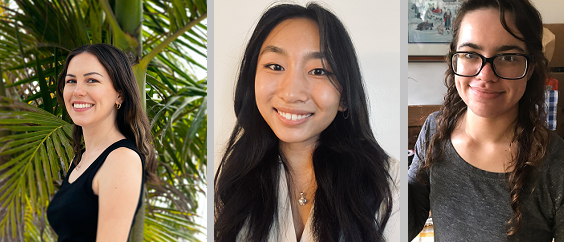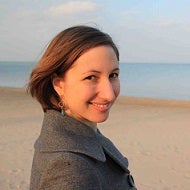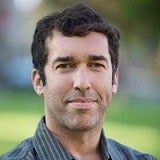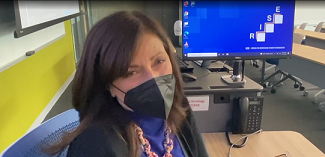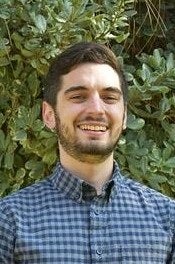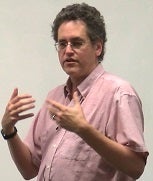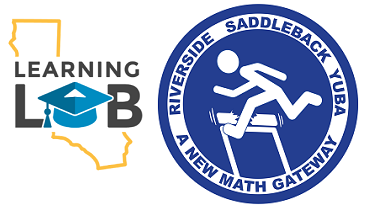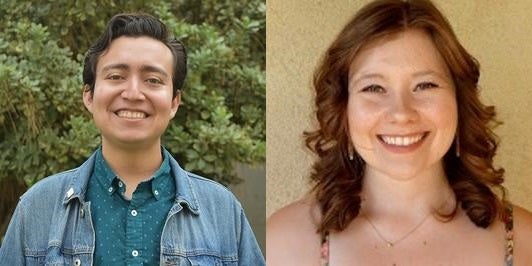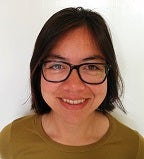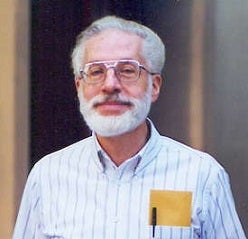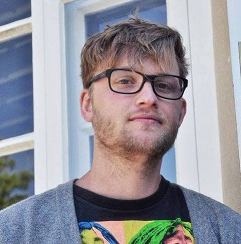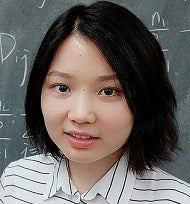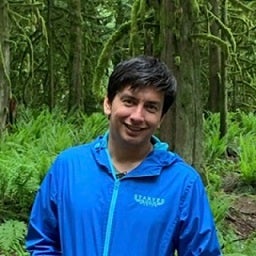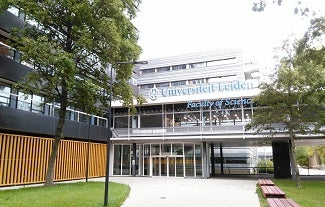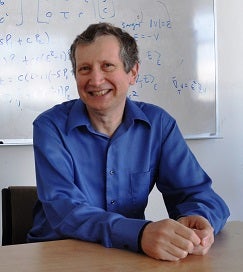John C. Fay Fellowship

The Math department is thrilled to announce the establishment of its John C. Fay Fellowship. This fellowship will give partial support to a graduate student who will give a series of lectures as a preliminary to each Victor Shapiro Lecture. The preliminary lectures will be known as The Big C Seminar in Mathematics.
More Information to Be Posted Soon
New Faculty
The UCR Math Department proudly announces that Dr. Yiwei Wang joined our department as an assistant professor in 2022. Prior to joining UCR he was a postdoctoral researcher at the Illinois Institute of Technology.
Dr. Wang’s research centers around mathematical modeling, scientific computing, and machine learning with applications in physics, material science, biology, and data science.
To get to know more about Dr. Wang’s activities, please visit his website.
SIAM UC Riverside
The SIAM (Society for Industrial and Applied Mathematics) Student Chapter is established in UCR. The purpose of this student chapter is to organize activities that foster the application of mathematics and computational science to engineering, industry, science, and society, and to promote research in applied and computational mathematics, and interdisciplinary studies in general.
To learn more about the SIAM student chapter, visit the website https://sites.google.com/ucr.edu/ucr-siam-student-chapter or contact the faculty advisors, Dr. Heyrim Cho and Dr. Jia Gou.
New Faculty
The UCR Math Department proudly announces that Dr. Sarah Yeakel joined our department as an assistant professor of teaching in July 2022.
Before coming to UCR, Dr. Sarah Yeakel was a Visiting Assistant Professor at University of Maryland and got her PhD from the University of Illinois at Urbana Champaign.
Her research interests are in algebraic topology and homotopy theory.
To learn more about Dr. Yeakel's activities, visit her website: https://sites.google.com/view/syeakel/home
New Faculty
The UCR Math Department proudly announces that Dr. Agnieszka Zelerowicz joined our department as an assistant professor in July 2022.
Before coming to UCR, Dr. Zelerowicz was a Brin Postdoctoral Fellow at the University of Maryland.
Dr. Agnieszka Zelerowicz's research focuses on smooth ergodic theory.
To find out more about Dr. Zelerowicz ’s activities, please visit her website: https://zelerowicz.com
2022 AWM Student Chapter Award for Community Outreach
The AWM Student Chapter at University of California at Riverside has been selected as the winner of the 2022 AWM Student Chapter Award for Community Outreach
The Bryce Mason Award Winners 2022
The Math Department proudly announces the 2022 winners of the Bryce Mason Award for being recognized by the faculty of the Department of Mathematics to have exhibited excellence in the study of mathematics and to have contributed to a positive learning environment.
Congratulations Alexis Avila Miranda & Riley Bradt!
[Pictured in order above]
The Bosch Award Winners 2022
The Math Department proudly announces the 2022 winners of the Bosch Award for outstanding achievement in the study of mathematics, exceptional mathematical aptitude, and the prospect of future success in a career field that utilizes mathematics.
Congratulations Alicia Leyba, Emerald Win & Nellie Garcia!
[Pictured in order above]
Junior Excellence in Teaching Award 2022
Professor Sara Lapan is the 2022 winner of UCR's Junior Excellence in Teaching Award for using a research-based approach to improving precalculus instruction.
Mid-career Fellows Award 2022
Professor David Weisbart is a 2022 winner of a Mid-career Fellows Award from UCR's Academy of Distinguished Teaching.
The AWM Student Chapter at University of California at Riverside has been selected as the winner of the 2022 AWM Student Chapter Award for Community Outreach. Each year, the Award for Community Outreach highlights one student chapter for outstanding engagement with the local community. The AWM Student Chapter of the University of California at Riverside receives this award in recognition of the varied, thoughtful, and original community outreach activities. The chapter’s efforts focused on connecting mathematics to the arts, k-12 outreach, and working with other campus entities. Highlights included the virtual conference Women in MathArt: Research, Creativity, and Teaching; a collaboration with the campus poetry club to explore mathematical poetry; participation in the campus Dia de los Muertos celebration by sharing entries for women mathematicians who have passed away; a platonic solids event for middle school girls through a STEM role-models program; and working with the education department to help prepare for a high school Sonia Day. The chapter’s efforts show a strong commitment to building community among the members, at UC Riverside and with the broader community.
- President: Camille Korbut
- Vice President: Shanna Dobson
- Secretary: Nicholas (Nick) Foster
- Treasurer: Nisha Desai
- Outreach Coordinator: James Alcala
- Faculty Advisor: Weitao Chen
RISE Rooms at UCR
UC Riverside looks to improve remote learning
Spectrum News featured Math Department teaching in RISE rooms. Professor Estela Gavosto shares her experience using the RISE technology to teach concurrently in the classroom and Zoom.
Alumni: Lawrence Mouillé
Congratulations to our 2020 Alum Lawrence Mouillé, who was awarded a 2022 NSF Postdoctoral Fellowship to work at Syracuse University with Lee Kennard. Lawrence's thesis, titled Positive Intermediate Ricci Curvature with Symmetries, is available here.
John Baez Named Fellow of AMS
The math department proudly announces that John Baez has been named a Fellow of the American Mathematical Society, for contributions to higher category theory and mathematical physics, and for popularization of these subjects.
For details on Professor Baez please go to AMS - UCR
UCR Mathematics in Curriculum Innovation
The Department of Mathematics at UCR is funded by the Grand Challenge of California Learning Lab for over $1.2 million to develop a new mathematics gateway. The project’s aim is to re-conceptualize how calculus is taught and to open a wide and inclusive STEM gateway. The materials developed under this project will be shared as Open Educational Resources to benefit all students and educators. Over ten faculty members from three different higher education institutes participate in developing this project. Project PI is Dr. Yat Sun Poon (UCR Mathematics), Project Director and co-PI is Dr. David Weisbart (UCR Mathematics). For more information, please visit its website: https://cllmath.ucr.edu
2022 AWM Student Chapter Award for Community Outreach
CNAS Graduate Diversity, Equity, and Inclusion Scholarship 2021 - 2022
This scholarship awarded to students who promote work in diversity, equity, and inclusion. Congratulations to Jonathan Alcaraz and Savanna Gee. Please follow the link to read their messages about the scholarship.
Congratulations to Therese-Marie Landry
Congratulations to Therese-Marie Landry for her award of a Postdoctoral Fellowship of the Mathematical Sciences Research Institute (MSRI). She will be affiliated with “The Analysis and Geometry for Random Spaces” Program in 2022.
As a noncommutative fractal geometer, Therese is interested in identifying elements of fractality that can be recovered from function spaces on fractals. In particular, she uses operator algebraic tools to build finite approximations of fractals with the goal of obtaining, as well as achieving new insights about, the geometry of the limiting object. Classical geometry relies on curves and surfaces that appear locally Euclidean. In contrast, fractals are infinite objects often characterized by self-similarity -- the repetition of a base pattern across a boundless set of scales. Scientists have successfully modified fractal patterns to model many diverse natural phenomena such as the bronchial tubes of a lung, the canopy of a tree, the network of blood vessels in the human body, the pathway of a lightning bolt, and the distribution of noise in data transmission over a communications channel. Because fractal structure in nature has self-similarity over an extended but finite scale range, advancement in the theory of finite approximations of fractals can lead to a better understanding of how fractal structures arise and evolve in nature.
Noncommutative geometry analyzes a space by studying the algebra of functions on that space. Since spaces that do not have paths or smooth structure often still admit many kinds of functions, ideas and tools from noncommutative geometry open up promising avenues for generalizing manifolds to describe quantum phenomena, where the wave function of a particle, but not its path in space, can be understood. Similarly, fractals, which often appear pathological in the setting of classical geometry, can be studied on the same rigorous footing as Riemannian manifolds when viewed as noncommutative spaces.
Therese joined UCR Math in fall 2015. Her thesis adviser is Dr. Lapidus. For additional information on research activities at UCR Math, please visit: https://mathdept.ucr.edu/events/weekly-seminars
MSRI is a nationally funded research center. For information on MSRI, please visit: https://www.msri.org/web/cms
In Memoriam: Theodore Joseph Barth, Jr.; Professor Emeritus of Mathematics; May 30, 1939 - March 17, 2020
Professor Emeritus of Mathematics, Theodore Joseph Barth, Jr., passed away on March 17, 2020. He was 80 years old.
Born on May 30, 1939 in Chicago, Illinois, Ted was the oldest child of Theodore J. Barth, Sr. and Mary Barth. From a young age, Ted excelled in math and science. He attended St. Mary’s School in Colorado Springs, Colorado on a full academic scholarship throughout grade school and high school until he graduated in 1957. Ted graduated summa cum laude from Regis College in Denver, Colorado with a B.S. in Mathematics in 1961. Having received a National Science Foundation Graduate Fellowship, he attended the University of Notre Dame and received his master's and doctoral degrees in Mathematics. After graduating from the University of Notre Dame, he went on to be a Visiting Assistant Professor at Notre Dame, a Visiting Faculty Member at Tulane University, and a Visiting Faculty Member at the University of California, Berkeley.
In 1972, Professor Barth joined the Department of Mathematics at the University of California, Riverside as a faculty member until he retired in 1992. Professor Barth contributed to the UCR and mathematical communities in numerous ways, serving on multiple Academic Senate committees and councils, as well as serving on the Chancellor’s Task Force on Student Services and the Chancellor’s Advisory Committee. As a mentor, he was an advisor for graduate and undergraduate students, and developed software programs to collect, compile, and run student assignments for the Mathematics Department. In research, Professor Barth focused on complex analysis and contributed a vast number of carefully produced referee reports and reviews. In the classroom, Professor Barth was a thoroughly well-prepared instructor. His message was clear, concise, and to the point. Professor Barth was known to be one of the most rigorous graders in the department, but his supportive and friendly personality also made him an extremely well liked and respected teacher.
Professor Barth was a train enthusiast and an avid photographer. Ted was incredibly generous and gave to many organizations, as well as supporting the education of his grand nieces and nephews, and his great-grand nieces. Ted is survived by his sister Mary Ann and the generations of nieces and nephews from his family.
Dr. Brian Collier Joins UCR Math Department in Fall 2020
Before joining UCR, Dr. Collier was an NSF post-doctoral fellow at the University of Maryland.
Dr. Brian Collier's research focuses on the interplay of different areas of math such as algebraic geometry, dynamical systems, gauge theory, Lie theory, and geometric group theory. In particular, he uses Higgs bundles and Nonabelian Hodge theory to study certain generalizations of hyperbolic geometry called Anosov representations and higher Teichmüller theory.
To get to know Dr. Collier’s activities, please visit his website: https://sites.google.com/view/brian-collier/home
Dr. Jia Gou joins UCR Math Department in Fall 2020
Dr. Jia Gou joins UCR Math Department in fall 2020, and a member of the Interdisciplinary Center for Quantitative Modeling in Biology (ICQMB) of the MathDepartment. Before joining UCR, Dr. Gou was a post-doctoral fellow in the University of Minnesota.
Dr. Jia Gou works in the area of nonlinear differential equations, dynamical systems and mathematical modeling of biological processes. In particular, she uses analytic tools such as asymptotic analysis and bifurcation analysis to study phenomena observed in a group of coupled cells or bacteria. She now uses computational tools including stochastic simulations and finite element method with adaptive meshes to understand the mechanism corresponding to the establishment of the gradient distribution of some diffusing molecules in both continuous and discrete senses.
To get to know Dr. Gou’s activities, please visit her website: https://profiles.ucr.edu/app/home/profile/jgou
To get to know ICQMB’s activities, please visit its website: https://icqmb.ucr.edu
Dr. Patricio Gallardo joins the UCR Mathematics Department
July of 2020 Dr. Patricio Gallardo joined UCR as an Assistant Professor in the Department of Mathematics. Before joining UCR he was a post-doctoral fellow at Washington University and University of Georgia. His mathematical interests include algebraic geometry, singularity theory, and Hodge theory. Dr. Gallardo is also interested in more interdisciplinary work.
To learn more about Dr. Gallardo’s activities, please visit his website: https://profiles.ucr.edu/app/home/profile/pgallard
Product Rules and New Insight Through Fourier Analysis
Every calculus student uses product rule to calculate the derivative of the product of two functions.In a recent article in the Notice of American Mathematical Society, Dr. Rodolfo Torres explains how modern Fourier Analysis takes this subject afar in functional analysis and applications.
Dr. Rodolfo Torres is a Distinguished Professor of Mathematics and Vice Chancellor for Research and Economic Development since fall 2019.To find out more about Dr. Rodolfo at UCR, please visit website: https://profiles.ucr.edu/app/home/profile/rodolfot
UCR Math Interdisciplinary Project is Co-Funded by the NSF Division of Mathematical Sciences and the Division of Molecular and Cellular Biosciences
Led by Dr. Mark Alber (PI) of UCR Math, a group of investigators from UCR and Notre Dame, is funded by the NSF for nearly $900,000 in the project NSF DMS 2029814 Project Title: MODULUS: Integrative multiscale modeling and multimodalexperiments to decode systems-level molecular mechanisms of epithelial systems.
This project seeks to combine mathematical modeling and experimentation to bridge the critical knowledge gaps required to predict how molecular signaling controlled by morphogens such as the Bone Morphogenetic Protein(BMP) and Wingless/WNT signaling pathways through cytoskeletal regulators drives cell and tissue shape generation and maintenance during embryo development.
Members of the team will integrate breakthroughs in mathematical theory of reaction-diffusion PDE systems on extending and deforming manifolds coupled with coarse graining mechanistic modeling approaches describing cell membrane and cytoskeleton with machine learning based surrogate models for image analysis, parameter estimation and uncertainty analysis.
Outreach activities of the project will be coordinated with the UCR InterdisciplinaryCenter for Quantitative Modeling in Biology (ICQMB: https://icqmb.ucr.edu/).
Interdisciplinary Team:
Principal Investigator: Mark Alber, University of California, Riverside
Co-PI: Weitao Chen, University of California, Riverside
Co-PI: Amit K Roy Chowdhury, University of California, Riverside
Co-PI: Jeremiah Zartman, University of Notre Dame
Co-PI: Alexander Dowling, University of Notre Dame
Co-sponsored by UCR Math’s Interdisciplinary Center for Quantitative Modeling in Biology and the Lorentz Center In Leiden, The Netherlands, Dr. Mark Alber co-organizes the Summer School “Modeling of Shape and Size in Biological Development”
Students are encouraged to participate in online activities including listening to review talks and working on introductory projects. These activities will culminate in intense training and exchange program from 24 to 28 August, 2020.
A follow up Special Session to be held at the 2021 Annual SMB Meeting, June 13-17, 2021at UCR as well as a Workshop at the Lorentz Center sometime in 2021-22 are planned.
The Summer School focuses on mathematical multiscale models of animal and plant development and plant growth. School participants will work with models rooted in the cellular level, i.e., models making links between cellular processes such as cellular growth and division, cell movement and interaction with the extracellular matrix (ECM), mechanical or chemical signaling between cells, etc., leading to organ shape development and growth at higher spatial scales.
Graduate students will be exposed to state-of-the-art examples of multiscale modeling in development. They will get hands-on experience with the development of mathematical and computational models as well as model calibration using experimental data. They will also develop in teams simple, but novel example models to answer open scientific questions proposed by the speakers ahead of time. Students will be expected to already have some experience in modeling but will be asked to work with a method that is new to them.
https://www.lorentzcenter.nl/modeling-shape-and-size-in-biological-development.html
Dr. David Weisbart Shares His Experience With Online Teaching
Dr. David Weisbart has been conducting online teaching at UCR Mathematics for several years. David is the PI for one ILTI grant and co-PI for two. In the video here he shares his advice and insights on how one may run online teaching.
Representing Mathematics in Science through the AAAS:
Dr. Michel Lapidus
The American Association for the Advancement of Science has been working to “advance science, engineering and innovation throughout the world for the benefit of all people”.
To this end their goals to:
- Enhance communication among scientists, engineers, and the public
- Promote and defend the integrity of science and its use
- Strengthen support for the science and technology enterprise
- Provide a voice for science on societal issues
- Promote the responsible use of science in public policy
- Strengthen and diversify the science and technology workforce
- Foster education in science and technology for everyone
- Increase public engagement with science and technology
- Advance international cooperation in science
In light of these goals the AAAS elects members of the scientific community to represent and pursue these goals. To this end, the AAAS and its members have seen fit to elect Dr. Michel Lapidus of the UC Riverside Mathematics Department as a Council Delegate for Mathematics. In this role Dr. Lapidus will share his wealth of experience and knowledge as a Distinguished Professor of Mathematics at UCR, the American Mathematical Society’s Associate Secretary for the Western Section and now as elected part of the AAAS.Considering his current positions at UCR, AMS and AAAS, Dr. Lapidus’ reflects, “…I hope to be able to help repay my debt to them all in taking on this new function. I also hope that this will eventually enable us to establish new ties between the AAAS, the AMS and other sister organizations sharing the same general humanitarian and scholarly goals, and more importantly, also between their members and their supporters.”
